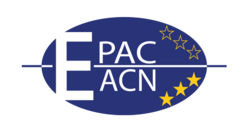This first meeting of the Working Group, hosted by the Special Investigation Service of the Republic of Lithuania, attracted IT and legal professionals from the EPAC member states Austria, Belgium, Germany, Romania, Spain, Poland, Sweden and, of course, Lithuania. European Anti-Fraud Office (OLAF) was also represented by sophisticated professionals of their Analysis & Digital Forensics Unit.
The aim of the meeting was to exchange best practices in seizing and processing big amounts of data for the purpose of disclosure and investigation of corruption, to discuss pitfalls to avoid from both technical and legal points of view, and also to provide a platform for informal gatherings and exchange of contacts between the interested professionals.
The first day featured presentations of technical and software solutions employed by the represented organizations, while the second was dedicated to legal challenges which might arise while gathering electronic evidence, requesting and responding to MLA requests, and preparing a case for the court trial phase.
The main ideas and conclusions of the meeting and guidelines for future activities of the Working Group will be presented during the EPAC/EACN Annual Professional Conference and General Assembly, which is scheduled to be held in Lisbon next month.
This was only the start of the Working Group; next, the Group will reassemble in Bucharest, Romania, at the beginning of 2018.The first meeting of the EPAC Working Group “Analysis of big data, related legal aspects, use of databases” took place in Vilnius, Lithuania, on 2 - 3 October 2017.The first meeting of the EPAC Working Group “Analysis of big data, related legal aspects, use of databases” took place in Vilnius, Lithuania, on 2 - 3 October 2017.
This first meeting of the Working Group, hosted by the Special Investigation Service of the Republic of Lithuania, attracted IT and legal professionals from the EPAC member states Austria, Belgium, Germany, Romania, Spain, Poland, Sweden and, of course, Lithuania. European Anti-Fraud Office (OLAF) was also represented by sophisticated professionals of their Analysis & Digital Forensics Unit.
The aim of the meeting was to exchange best practices in seizing and processing big amounts of data for the purpose of disclosure and investigation of corruption, to discuss pitfalls to avoid from both technical and legal points of view, and also to provide a platform for informal gatherings and exchange of contacts between the interested professionals.
The first day featured presentations of technical and software solutions employed by the represented organizations, while the second was dedicated to legal challenges which might arise while gathering electronic evidence, requesting and responding to MLA requests, and preparing a case for the court trial phase.
The main ideas and conclusions of the meeting and guidelines for future activities of the Working Group will be presented during the EPAC/EACN Annual Professional Conference and General Assembly, which is scheduled to be held in Lisbon next month.
This was only the start of the Working Group; next, the Group will reassemble in Bucharest, Romania, at the beginning of 2018.
